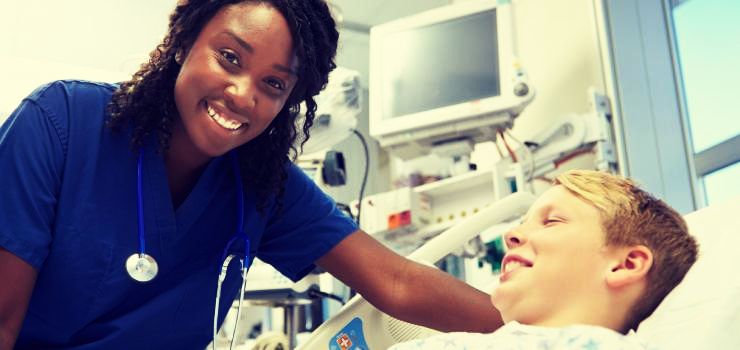 Bachelor of Science in Nursing (BSN) is a four year degree program that teaches students the necessary skills and knowledge to care for the sick and injured. The program revolves around four main components; health promotion, disease prevention, risk reduction and health restoration. The course consists of subjects in General Education (English, Mathematics, Filipino) and Professional Nursing (Theoretical Foundations in Nursing, Nursing Care Management). As a student you will be trained to use the most important concept in the program which is the Nursing Process (Assessment, Diagnosis, Planning, Implementation and Evaluation). The program will also prepare you to be able to accurately perform health assessment, important nursing interventions, perioperative care, emergency and disaster response and medical documentation. You will learn how to deal with patients having special needs such as those who are suffering from mental illnesses (Bipolar Disorder, Multiple Identity Disorder) , developmental disorders (Autism), degenerative disorders (Parkinsons Disease), physical disabilities (comatose patient) and those who need palliative care (terminally ill/dying patients). The teaching methods used are classroom discussions, return demonstrations (an educational technique in which a student demonstrates what they have just been taught infront of a clinical instructor) and clinical exposures in different healthcare settings. Is Nursing a Profession? Nursing is a profession. A graduate of BS in Nursing who passed the board examination is called a Registered Nurse (RN). A Nurses job includes the assessment of patient health problems, developing and implementing nursing care plans, and maintaining medical records. They also administer nursing care to the ill, injured, convalescent, or disabled patients. In addition, they may also advise patients on health maintenance and disease prevention or provide case management. What are the admission requirements for BSN? Requirements at each school may differ, but these are the common requirements:
What skills and attitude are required to succeed in this course? The following are the most important ones:
How difficult is this course? BSN is quite a difficult course. It needs accuracy at all times, there is no room for mistakes during clinical duty because the patients life is at stake. A right mindset is also needed most especially during clinical exposures because the situation in the hospital is very unpredictable. How long does it take to complete the Nursing program in the Philippines? The BSN program takes 4 years to complete. The program may also be completed in less than 4 years for schools who follow a trimesteral curriculum. In the year 2008, CHED (the official governing body of higher education institutions) released a memorandum order transforming the BS in Nursing program into a five year course. However, the order was later revoked because school owners and nursing deans stood in opposition. Instead, CHED released an Enhanced Bachelor of Science in Nursing Curriculum. As of the moment CHED has not released any mandate on the implementation of the new curriculum. Review for the board examination may take 3 to 6 months, depending whether you pass your first try. Related Learning Experience (RLE) During Related Learning Experience (also known as clinical duty/clinical exposure) student nurses are distributed in different hospital settings and community clinics. Supervised by an experienced clinical instructor, you will perform nursing interventions on his assigned patient. The total number of RLE hours in Nursing is 2,346 hours. Specializations
The Board Exam A graduate of BS in Nursing needs to take the Nurses Licensure Examination (NLE) before he/she can practice the profession. The Board of Nursing (BON) facilitates the exam under the supervision of the Professional Regulations Commission (PRC). It is scheduled twice a year in the months of June to July and December. There are five sets of subjects included in the exam and each subject is composed of 100 questions. Fundamentals in Nursing, Community Health Nursing, Medical Surgical Nursing, Maternal and Child Health and Psychiatric Nursing are the five main subjects included in the exam. To pass the examination you should obtain a general weighted average of 75% with no rating below 60% in all the subjects. The result of the board examination is released after 2 to 3 months. Career Opportunities for BSN graduates
Apply Now |
AuthorArchives
December 2017
Categories
All
|

 RSS Feed
RSS Feed
